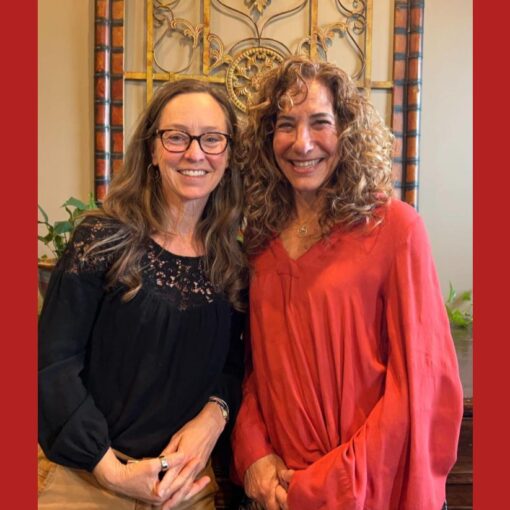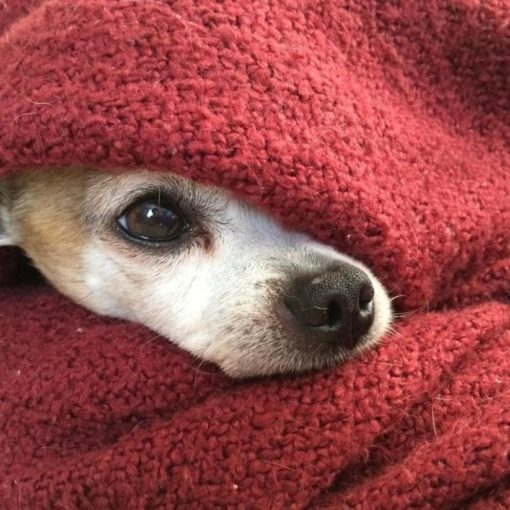Podcast: Play in new window | Download (Duration: 9:57 — 3.5MB)
Subscribe and don't miss an episode! Apple Podcasts | Spotify | Android | iHeartRadio | Deezer | RSS
In this revisit of our Magic Melatonin podcast, we discuss what Melatonin is, how it works in our bodies, the benefits of it (including its beneficial effect on cancer), foods that help our bodies produce melatonin, and the question about supplementing.
Transcript of Magic of Melatonin–Revisited
Edited for clarity.
Wendy 00:00
So we’re reposting this Magic Melatonin podcast because it’s early summer, and we’re both having sleep challenges with our animals.
Debbie 00:12
Yeah, and it’s light until 8:45. And we listened to this podcast just to see what it sounded like and forgot how great it was.
Wendy 00:21
There’s so much super information. I mean, before we go into that info, I mean, you’ve got your animal house right now.
Debbie 00:29
Yeah, I am an Animal House. I got cats, dogs and ducks that we’re raising right now. And they all wake up at the crack of dawn, because their melatonin says it’s time to wake up.
Wendy 00:41
And well, and they aren’t sleeping in room darkening shade places, right? You don’t have any masks on them. Right?
Debbie 00:48
Exactly. Not like me. Yeah, I have my mask on. But that doesn’t help the animals from waking me up.
Wendy 00:54
Right, right, well, and our cats wake us up too. We’ve gotten into the habit of feeding them at 4 am, just to put them back to sleep. So anyway, some of the really hot buttons, we want to have you stay tuned. We talk a little bit about the support of melatonin in cancer, and how it’s so affected by our gut health–the connection between melatonin and gut health.
Debbie 01:20
Absolutely. And we also touch on how taking a supplement of melatonin may not be the best idea, you may not actually need it. And if you do, it could be a good idea. But people are probably overusing it.
Wendy 01:35
Hmm. And then we round out with foods to eat to help you generate your own melatonin. So stay tuned. Thanks so much for listening. So, we’re so excited that you’re here and joining us today we are talking about the magic of melatonin.
Debbie 01:50
This is a good one.
Wendy 01:50
This is a good one because we all need our sleep. We all probably don’t quite get enough sleep for optimum health, right. So we’re going to talk about why we need it, how to get it, and a couple of foods that help produce it as well.
Debbie 02:04
Melatonin is so incredible. I hadn’t realized before we did our research, how incredible it is and all that it does. So this is really interesting.
Wendy 02:11
And it’s very interesting that you bring it up because the last few nights I’ve gotten very little sleep staying up late with bright lights and on my computer. And so this is really a good reminder for me, this stuff happens for a reason.
Debbie 02:23
That’s right. That’s right.
Wendy 02:25
So the first thing about Melatonin is that in order to get optimum production of melatonin, we need darkness.
Debbie 02:32
Right. 100% darkness.
Wendy 02:34
100% darkness and that is not. That’s not often the case for many of us.
Debbie 02:42
Right. You know, my husband makes fun of me because of how dark I make the room because he doesn’t–he thinks he doesn’t need the darkness to sleep.
Wendy 02:48
We’ll talk about some of those.
Debbie 02:50
Right. But I do and I guess I knew it. So where does it come from? What is this melatonin? It’s a hormone.
Wendy 02:56
And it’s produced by the pineal gland, that little tiny thing in the brain. And it regulates our body’s relationship with light and dark. So it’s kind of like it’s a clock. You know, it’s a regulator.
Debbie 03:08
Right, they actually see it as a reset button for our circadian rhythm. Because during the day when it starts to get dark, it starts producing and when it gets light, the melatonin stops producing.
Wendy 03:18
Isn’t our body fascinating? So why do we care? Why does it matter? Why is this melatonin such a big deal?
Debbie 03:28
Right– besides sleep? Right?
Wendy 03:29
Yeah, besides just the natural effects of sleep? What happens to our body if we don’t?
Debbie 03:35
Well, it has everything to do with cellular health, our mental acuity. It’s a powerful, powerful antioxidant. And it’s anti-inflammatory. Those are two things that we need for optimal health.
Wendy 03:47
Right. It’s our self-defense mechanism for so many issues.
Debbie 03:52
It helps our immune system, right? So it’s our master repair hormone.
Wendy 03:57
All right. So we need melatonin.
Debbie 03:59
We do.
Wendy 03:59
It’s critical.
Debbie 04:00
But even better than all of that, or maybe because of all of that, it’s got a lot of anti-cancer research. So they find that it’s killing cancer cells.
Wendy 04:09
Yeah, there’s a lot of study around that. And it’s helping mitigate the growth of tumors. So it’s a lot of interesting studies about melatonin and cancer.
Debbie 04:19
So melatonin just is just not responsible for sleeping, but it controls so many different mechanisms for making our body run smoothly. So it’s really a key part of good health.
Wendy 04:30
And this was also fascinating that the production of serotonin, which is 90% produced in our gut. Serotonin actually helps produce melatonin. So if our gut is off, and we’re not producing enough serotonin, we’re not producing enough melatonin and we’re not sleeping well. So you’re off on our personality and our mood. We’re off on our sleep and insomnia. It’s a vicious cycle.
Debbie 04:56
It is a vicious cycle.
Wendy 04:57
So we go back to the gut, right?
Debbie 04:59
It always comes back to the gut–always. So the process is that when it gets dark and levels of melatonin increase, a lot of people fight that, you know that we don’t want to be tired at 10 o’clock, right? You know, say we still have work to do or we didn’t get a chance to relax yet. So what do we do?
Wendy 05:18
We unwind in front of the TV and have a lot of screen time right before we go to bed.
Debbie 05:23
Bright lights.
Wendy 05:24
Bright lights. We may want to stay up to finish that report or get ready for something and grab a coffee late in the day.
Debbie 05:30
That’s right. Or maybe you’re out to party. You know, maybe you just like to party every night or be social some way every night.
Wendy 05:40
Some people turn to drugs. Drugs to actually keep ourselves awake.
Debbie 05:45
Or, maybe they’re just simply on drugs that are prescribed by their doctor antidepressants. Some anti-cholesterol drugs, some drugs like that inhibit melatonin to
Wendy 05:54
Ouch!
Debbie 05:55
Yep.
Wendy 05:55
So basically, all these things that we’re actually using to try to keep ourselves awake are inhibiting our health,
Debbie 06:02
Because it doesn’t allow us to produce melatonin, which is responsible for all those wonderful things we said.
Wendy 06:07
Right. So, I know, there are a lot of excuses. I’ve used them before. And I know that we both have clients who use the excuse, you know, I don’t need that much sleep. I can run on four hours of sleep. And it’s a misnomer. Yes, ultimately. And that’s difficult for a lot of people to wrap their heads around.
Debbie 06:24
Yeah, I think so. And a lot of people think they can make it up. If I didn’t sleep enough, this week, at least I’ll have time this weekend, to sleep in. Right. Right. And, or they take a nap, which isn’t quite the same because it’s not dark. And we are built to sleep at night. You know, our it’s a natural human nature to sleep at night when the lights go down.
Wendy 06:46
And it’s also really good in the whole idea of circadian rhythm to try to get this on a regular basis–going to sleep at the same time every night. Our body loves consistency.
Debbie 06:58
One of the other things that I wanted to mention too, is that melatonin as a hormone is water and fat-soluble. And that means that it moves freely throughout all of our cells. And it does its powerful antioxidant work because of that.
Wendy 07:13
Yeah, nice. And it also helps protect the mitochondria, right, which is our energy center of the cell. And it helps protect our DNA as well.
Debbie 07:23
Pretty important.
Wendy 07:24
Yeah, Melatonin is up on the list there.
Debbie 07:27
That’s right. So there’s a lot of research on what melatonin does, especially when it comes to anti-cancer benefits. So we advise you to look into that yourself.
Wendy 07:36
Yeah, for sure.
Debbie 07:38
One more thing, though, as far as supplementing, which is, could be a good idea for some people, if you’re pregnant, lay off of the supplements because melatonin does regulate female reproductive hormones. And that could kind of disrupt some things if you’re pregnant.
Wendy 07:53
Right. Right. So, we recommend supplementing in mostly in extreme circumstances, if someone has night work they’re doing if they have insomnia, you know, late shift work is what I meant or insomnia, maybe jetlag, a lot of travel. And we don’t need to have it every night. We don’t need that consistent, added nutrient who want to try to pattern it in a more natural way.
Debbie 08:20
Right, it’s much better for your body to make its own melatonin. So, if you need to supplement don’t depend on it, have better habits so that your body’s producing it naturally. But there are some foods that help melatonin production. So, if you think this is an issue with you, if you don’t want to take a supplement, you can increase some of these foods that help you produce it naturally. And let’s name a few of those foods.
Wendy 08:43
So a couple of them are fruit: pineapples, oranges, bananas, and cherries.
Debbie 08:47
Tart cherries too.
Wendy 08:48
Tart. Yes.
Debbie 08:50
We don’t necessarily want you to eat fruit at night because of the sugar content. So there are other foods that you could eat later at night if you want to help that production too: oats, and corn. Barley, those three grains are really good. There’s also tomatoes.
Wendy 09:07
Isn’t that interesting that it’s tomato season right now and it’s getting darker earlier? Another one of nature’s finest. Oh, and ginger too. Yeah, right. Ginger is good. So maybe having some ginger tea at night?
Debbie 09:22
Yep. Perfect. Yeah, and a couple of minerals that help too are calcium and magnesium. So if you’re already supplementing with those, take them at night if you’re not taking them at night you might switch that schedule to nighttime.
Wendy 09:35
So, we hope you’ve learned as much as we have about melatonin and we wish you Sweet dreams.
Debbie 09:40
Right Good night.






